
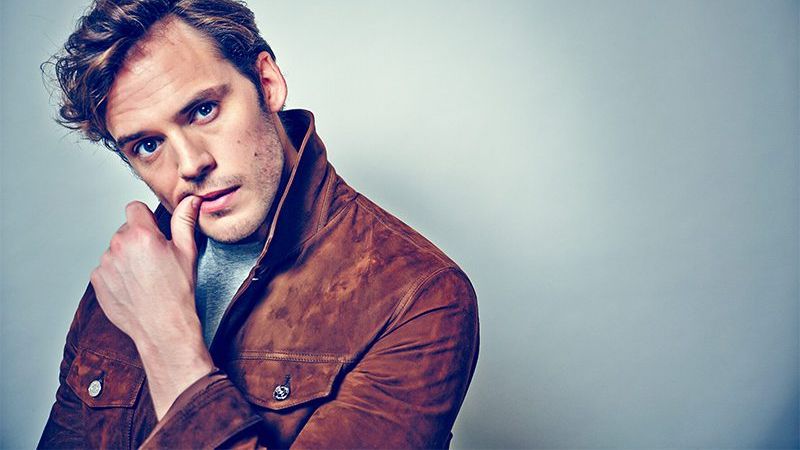
Words: Adam Thorn
Photography: Adam Fussell
The standout scene in The Riot Club, Lone Scherfig’s vicious parody of Oxford’s notorious Bullingdon Club, focuses on the society’s raucous annual dinner, held in a private function room in an out-of-town family pub. The meal starts with the 10 students, dressed in full navy blue tailcoats, belting out ‘God Save The Queen’ before the afternoon quickly descends into drunken anarchy: they snort cocaine off the table, hire a prostitute for group sex, smash crockery, tear down wallpaper, throw chairs, vomit over the floor, set off fire hydrants and abuse the waitress.
Eventually, the mild-mannered landlord enters the room and surveys the wreckage around him. Distraught, he walks over to the group where he’s confronted by new member Alistair Ryle, played by Sam Claflin. Alistair punches him, knocking him to the ground. And, as the landlord tries to crawl towards the door, the group hurls him on top of a table full of broken glass and beats him relentlessly. The scene ends with the group holding his battered body up by his arms as Alistair, mimicking a cricket batsman, strikes his face with a plank of wood.
There’s venom to Claflin’s performance, and it’s by far the highlight of a film that received mixed reviews from critics. The scene marks a sudden change in direction for a movie that, before that point, seemed more concerned with being a mummy-and-daddy cartoon satire of entitlement. But it also, perhaps, signalled an abrupt change in direction for Claflin’s career, too – one previously defined by playing the loved-up young man in blockbusters such as Pirates of the Caribbean, Snow White and The Hunger Games.
“I felt I had been pigeonholed,” says Claflin today of his early roles. “I played the same part time and time again. The really nice good guy. The romantic lead. I wanted to do smaller and more intimate, fleshed out characters. You see some actors play the same part in different movies and a part of me said “no”. The actors I admire are people such as Christian Bale, who literally transform themselves from job to job. I’m looking to build up to that.”
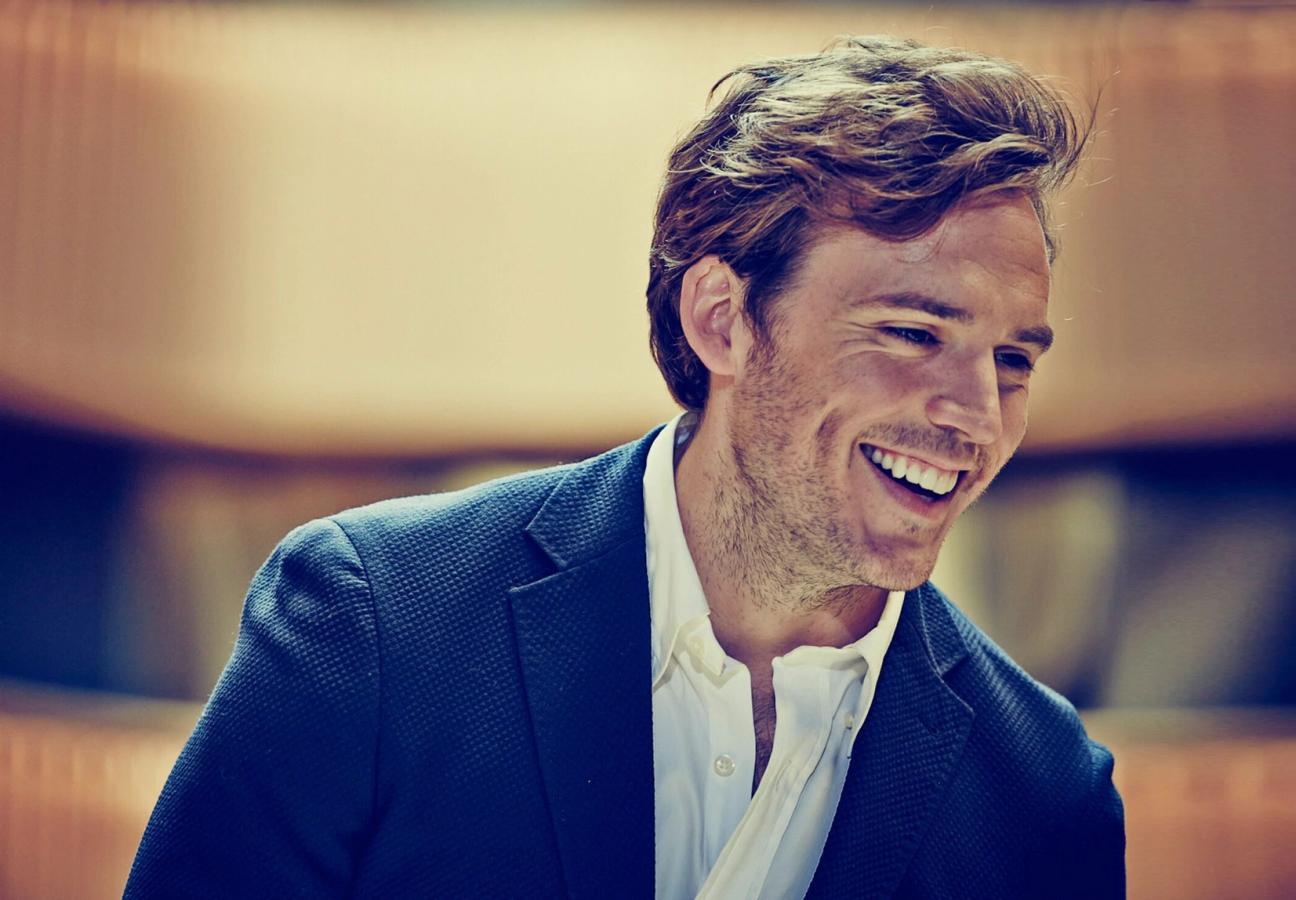
Sam Claflin is fidgety. In fact, he may well be the most animated man I’ve ever met. Darting around the Dorsett Hotel in London’s Shepherd’s Bush where we’re shooting him today, he can’t stop moving just about every part of his body – when he’s not bending his knees or clicking his fingers or rubbing his face, he’s shuffling his feet or breaking into dance and swooping his Aquascutum trench coat around like it’s Superman’s cape.
By rights he should be exhausted. He had his first child only a few months back, and today was supposed to be his day off. He arrived bang on time, at 9 o’clock this morning, dressed down in T-shirt and jeans, accompanied not by a team of minders but one PR sent on behalf of the movie he’s promoting, Me Before You.
He’s as handsome and well-built as you’d imagine, though not imposing – he’s just 5ft 11in – and his boy-next-door look is only spoilt by a subtle red swallow tattoo on his biceps that he got inked two years ago on his 28th birthday. He’s not done many of these kinds of photoshoots before today, but he doesn’t seem at all fazed, joking with our crew and playing along with our fussy fashion editor Holly, and indulging her dry sense of humour.
His down-to-earthness probably stems from his upbringing. Raised in a sporty, working class family of four in East Anglia – his dad was an accountant and his mum a classroom assistant – he was set for a career as a footballer. A handy centre-back, he earned a place in Norwich City’s youth academy before his dreams were cut short by a series of nasty ankle injuries.
“I’m not sure I thought I would make it as a professional, but I was considering going into coaching,” he says now, perched on a sofa in his dressing room after the shoot. “When I couldn’t play any more I had to make real life choices. I needed a plan B. All I knew is that I didn’t want to do anything academic. I like being physical and using my body to express myself.”
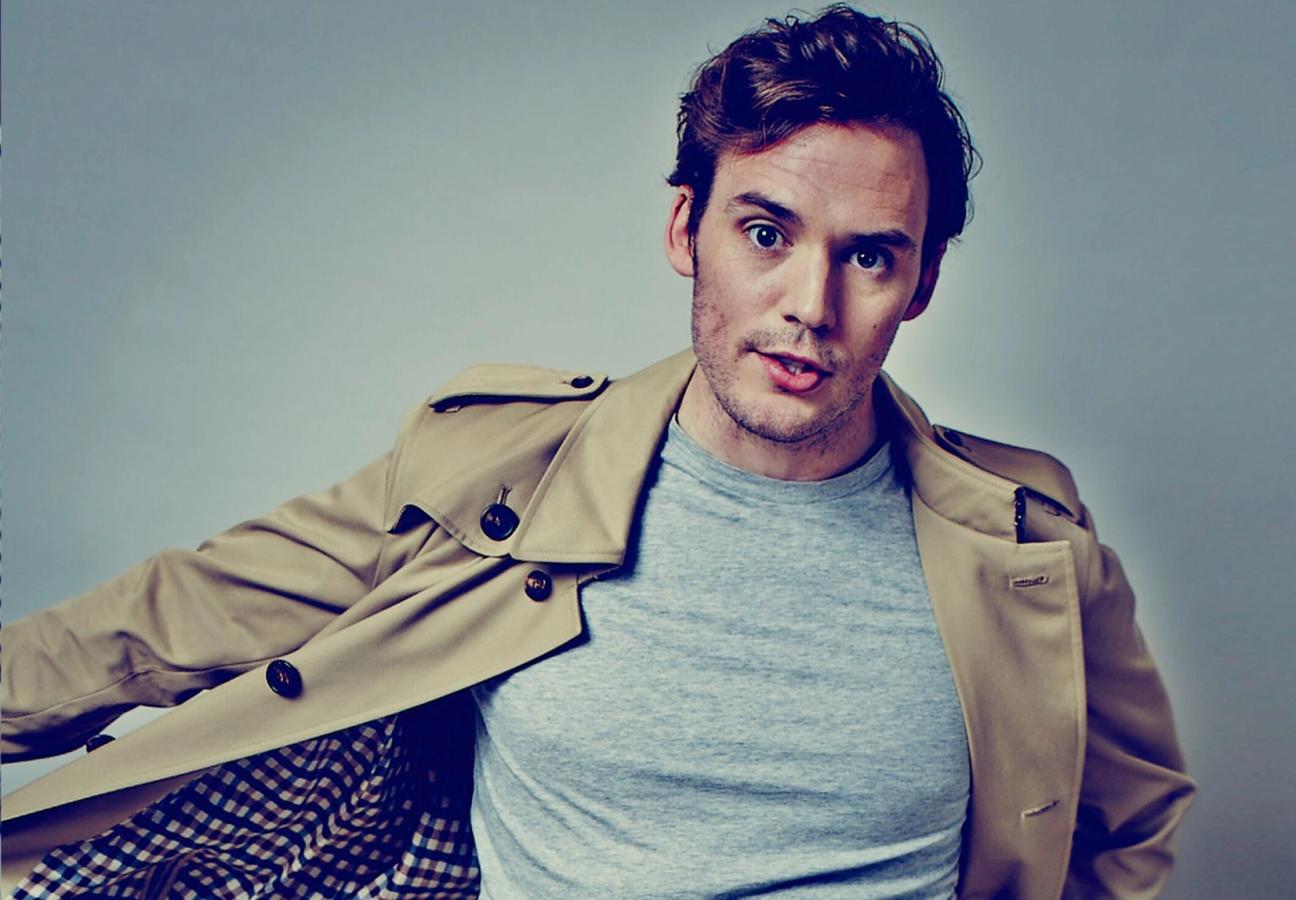
He found his calling in drama. A small role in Jesus Christ Superstar at school (“I played Priest Number Three and I still remember my lines. All three of them…”) got him noticed by teachers, who handed him the part of The Artful Dodger in Oliver, before inviting him along to watch productions at the nearby Theatre Royal in Norwich. He loved the acting, yes, but also the sense of being part of a small team.
“He took part in a talent show and gave the most incredible rendition of ‘There’s a Hole in my Bucket’, dressed as half-woman, half-man, turning round each time to sing the right lines,” remembers Dave Watson, who taught him performing arts at Costessey High School. “He really pitched himself into parts. At first we noticed his enthusiasm, but then his characterisations came to light. He approached his parts with a real intensity. He gave everything.”
He went on to study a BTEC in drama at Norwich City College and then – after a year out working odd jobs to save money – attended the London Academy of Music and Dramatic Art, whose graduates include Chiwetel Ejiofor, Benedict Cumberbatch and Ruth Wilson. After struggling to get parts for five months, the roles eventually trickled through. They were minor, yes, but – perhaps not coincidentally – in TV dramas that generated huge acclaim. Pillars of the Earth, starring a young Eddie Redmayne, was given a Golden Globe nod while Any Human Heart, featuring Jim Broadbent and Kim Cattrall, won a BAFTA. Clearly he was doing something right, and his next role was altogether meatier, playing Manchester United’s Duncan Edwards in United, the story of the Munich Air Disaster that wiped out most of the football club’s first team.
Then – almost out of nowhere – he won a young actor’s lottery – landing a part in Pirates of the Caribbean: On Stranger Tides, the fourth in Disney’s $4 billion-grossing, Johnny Depp-fronted blockbuster series.
“I went for an audition in London and it was by far the biggest thing I’ve done and I didn’t feel confident,” Claflin says. “There wasn’t a possibility of getting it. Of course there wasn’t. A week went by and the producers wanted to see me in LA. But I had to fork out for the flights to get there, I didn’t know anyone and hadn’t been paid for my previous jobs at that point. It was quite a risk – I wiped out my bank account and went into my overdraft to get to LA.”

The gamble paid off. On Stranger Tides gave him exposure to the top tier of Hollywood’s most influential executives, and, while his role was small (playing a missionary captured by Blackbeard who plays out the film’s secondary love story), he impressed enough that he was recommended for similar roles in two other enormous film franchises. In Snow White and the Huntsman, his character William was involved in a love triangle with Kristen Stewart and Chris Hemsworth, while in the second, third and fourth Hunger Games films, he played bad-boy-come-good Finnick Odair alongside Jennifer Lawrence, Woody Harrelson and Philip Seymour Hoffman.
Combined, those films generated £3.7 billion worldwide, making Claflin – quite astonishingly – one of the highest-grossing movie stars of the decade.
So Sam Claflin is already a star. But now he wants something more – to be considered a talent, too. Aged 29, he’s part of a generation of young actors usually shackled to cinema’s obsession with ‘four-quadrant tentpole’ franchises (the baffling Hollywood jargon for big budget film and TV series aimed at both genders and all ages) and pile-’em-high-flog-’em-cheap teen comedies.
From High School Musical to Superbad via Twilight and Harry Potter, Noughties twentysomethings struggled to get the kind of breaks handed to Leonardo DiCaprio and Kate Winslet in Titanic, say. There’s been some notable exceptions, of course – Jonah Hill can boast acclaimed turns in Moneyball and The Wolf of Wall Street, while Jennifer Lawrence won an Oscar for Silver Linings Playbook – but the less said of Zac Efron’s car-crash portfolio the better (an MTV Movie Award for Best Shirtless Performance, his highlight).
Claflin’s new film, Me Before You, is his boldest and most high-profile attempt yet to break free since Riot Club. Starring opposite Emilia Clarke, it tells of the story of a quadriplegic thirtysomething, Will Traynor, planning his suicide and his new carer, Lou Clark, trying to stop him. She is an unambitious 26-year-old recently made redundant from her job waitressing in a café, while he was previously a successful and wealthy man before a motorcycle accident took away most of his mobility, and all of his spirit. He lies awake each night lost in thoughts of bitterness and anger, unable to move and clear his head until he is awoken by the family’s hired medical help. The movie is based on a five-million-selling book by novelist JoJo Moyes, and with a built-in fanbase from the book as well as its two leads, the studio must have high hopes it could become one of the breakout films of the summer. For the kinetic Claflin though, it represents a chance to act in a hugely challenging role.
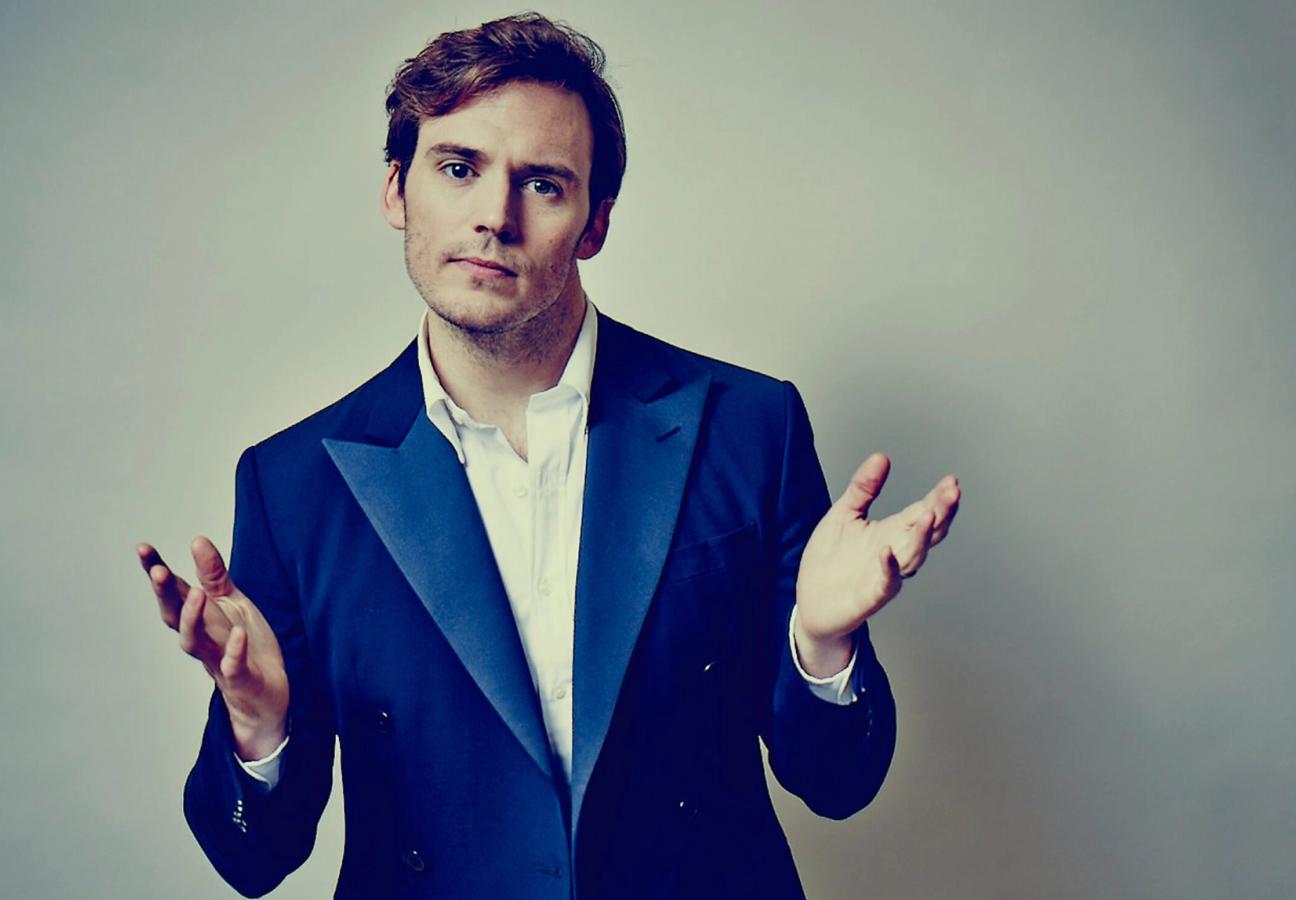
“I went to a dark place and it’s one of those jobs I took home,” Claflin admits. “I felt emotionally drained and physically it was the most demanding thing I have ever done. I didn’t think it would be that hard. His life is over. Everything he once had or cared about is gone. He’s on his own and bitter and sad and depressed and not in a good place before she enters her life. He needs someone like her who is not afraid.”
The story opens up the topic of euthanasia to a younger audience by wrapping it in a traditional love story about two people from different worlds – younger and older, rich and poor, a man who used to have confidence and a girl who doubts herself – but really it deals with more general themes. Will’s biggest gripe is not his problems, but people’s attitudes towards them. Friends and family avoid asking difficult questions, patronise him or take his bitter insults in good grace. It is an observation not lost on Claflin.
“Everyone is scared. Everyone sees the wheelchair and not the person sitting in it. Everyone is scared of telling him the truth. Nobody wants to admit that life has changed. He’s had two years of bullshit. And Lou [Emilia Clarke] comes in and isn’t afraid to speak her mind. That’s where the initial connection happens. He thinks, “Thank you, that’s all I need. Someone being honest. Tell me I’m an arsehole, that’s what I want. Don’t say it’s OK if I treat you bad. Will wasn’t seen as a person anymore. It was tough to get my head around.”
Sam Claflin did something in our brief time together that none of the other famous people I’ve interviewed has ever done: he name-checked the people he felt helped him along the way when he was a teenager. Not just a general reference, but the specific names and how they had helped, all without prompting. It’s the reason I spoke to Dave Watson, who still teaches part-time at his old secondary school.
“He is a down-to-earth guy,” says Watson. “We put on Ghosts the musical at school and he and his wife came down to watch it, and had a long chat with the kids.”
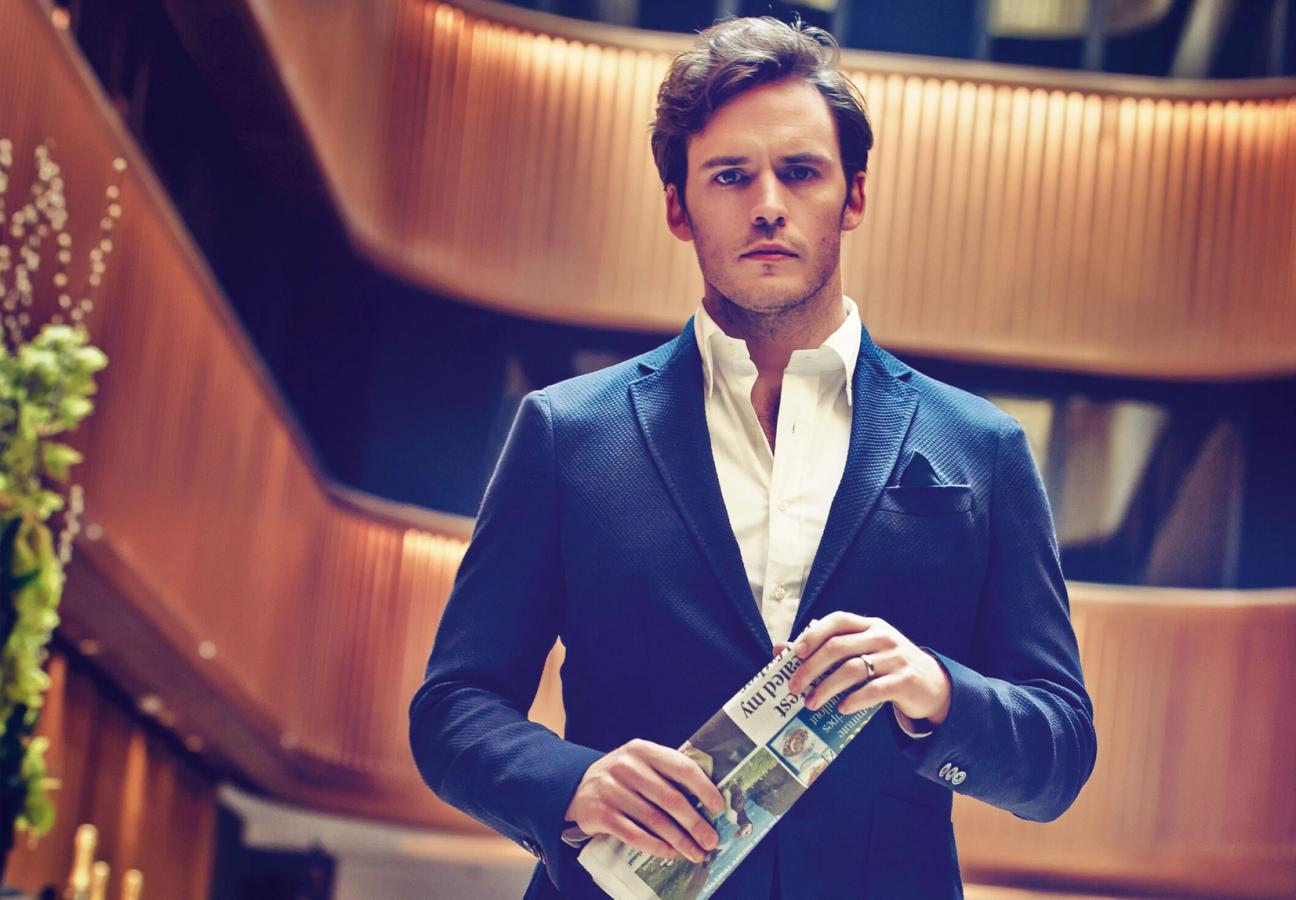
In fact, when he found out a number of the students were planning to go to drama school, he went one step further: taking them under his wing, advising them, swapping numbers and even taking them out for coffee.
“That’s typical Sam. He never forgets where he came from. He’s very grateful for everything he says we did for him.”
He could be more famous, then, but has chosen not to be. His social media posts are more silly than revealing. “People don’t need to know what I ate for breakfast. The actors I admire don’t do that. That’s not real life. The beautiful thing about Instagram is people only see what they want you to see. It’s not reality – it’s a bit blurry.”
Just before we’re about to wrap up I ask Claflin what drew him to acting. “I’m an observer and quietly shy. I prefer putting on a mask and hiding. I can’t bear taking selfies and I hate my face. I have inherited the traits of people I admire, so I’m like a little jigsaw puzzle.”
He’s going to have plenty of opportunity to show off his versatility in the future. What must he think, I wonder, of everything that’s happened to him?
“It seems so far-fetched for me. I’m just a kid from Norwich.”
This article was taken from the Summer 2016 issue of Gentleman’s Journal. Read our latest cover interview, with Willem Dafoe, here…
Become a Gentleman’s Journal member. Find out more here.


